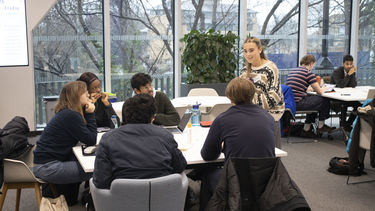CVs, applications & interviews
See what actions you'll need to take during the job application process, from making speculative applications to attending an interview.
Graduate access
A lot of the content in this section of the website is only accessible to students - however if you are a graduate, you can access this content via Career Connect (login required).
Don't yet have an account? Sign up for a graduate account now.
More essential information
Equality and disclosing a disability
This page provides initial advice on researching employers and being open with them about your disability.
Using AI for applications
This page aims to outline how you can engage with generative AI to support you in the application stage.
Applications for further study and research
Considering applying for a masters, PhD or research post? This guidance will help you get started.
Social media and speculative approaches
Not all employers advertise jobs, so you may need to contact them or use social media to find opportunities.
Learn about speculative applications and using social media effectively
STARR technique
Use STARR to help you to write about your skills and competencies in an application, or to structure your answers in an interview.




